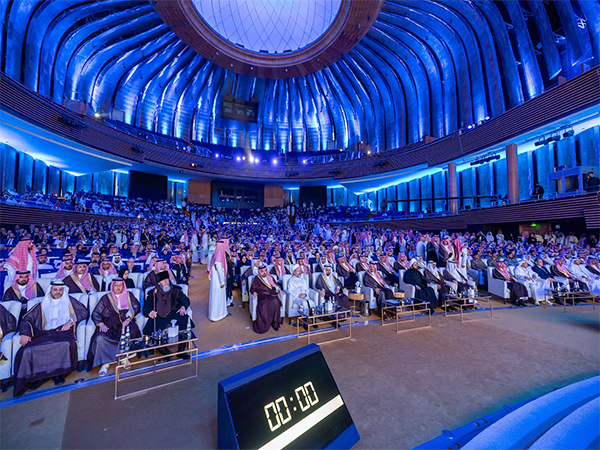Percentage of Indians using cash as primary mode of transaction falls by 50 per cent in 2020: LocalCircles
Nov 06, 2020

New Delhi [India], November 6 : The percentage of Indians using cash as the primary mode of transactions has gone down by 50 per cent in 2020, as per a survey by LocalCircles on Friday.
The survey was conducted to understand citizens' purchasing habits with and without a money receipt, and the purpose of that transaction. It then compared this year's findings with a similar survey released in 2019 to understand the trend among citizens transacting in cash without receipt in the last 12 months.
The first question, to which 14,738 responses were received, was, "If you look at the last 12 months, on a regular basis, what percent of your monthly purchases on average were without a receipt?"
Of which, 48 per cent of the respondents said "5-25 per cent", while 34 per cent said "25-50 per cent", and 14 per cent said "50-100 per cent", while the rest four per cent refused to reply.
This is approximately half of the 27 per cent of responses in the "50-100 per cent" category received from survey takers in 2019.
Quoting data received from the Reserve Bank of India, published in October this year, the survey report said that "India in FY 20 witnessed a massive rise in volumes of digital payments to 3,434.56 crore. In five years, i.e., from the period between 2015-16 and 2019-20, digital payments saw an annual growth rate of 55.1 per cent in terms of transaction volumes and 15.2 per cent in terms of value. Only in October 2020, the UPI-based payments hit a new milestone with 207 crore transactions."
The second question in the survey tried to understand for what purposes citizens transacted in cash without a receipt.
To the question that asked "If you look at the last 12 months, for which category of purchase have you paid the most amount in cast (without a receipt)", 15,376 citizens responded. Of which, 39 per cent of citizens said "groceries", 31 per cent said "salaries of domestic staff'', 9 per cent said "discretionary purchases and eating out", 3 per cent said "property, rent and home repairs", 1 per cent said "used vehicle", 7 per cent said "bribes", while 10 per cent said "didn't make any purchases in cash".
Upon being compared with the last year's results, "groceries" and giving out "salaries to domestic staff", both of which are low-value transactions, continue to be the top categories where citizens transacted in cash and didn't produce a receipt
As per LocalCircles, demonetisation of Rs 500, and Rs 1,000 currency notes had been aimed at solving the issue of black money, a fraudulent economic activity that usually takes place in the absence of authentic cash bill, receipt or invoice leading to the transaction not being taxed, which makes the government lose out revenue.
"The move was hugely supported by citizens from around the county, but quickly lost ground after facing implementation issues, inconvenience to deposit and withdraw money from banks, which temporarily caused the country's economy to slow down, as well as loss of livelihood for many," it said.
It further states that the Goods and Services Tax (GST) rolled out later on enabled it further, but it was the COVID-19 pandemic which "accelerated it".
Meanwhile, in response to the third query, which asked for the moves to be implemented by the government for further reducing black money, 33 per cent of the respondents vouched for making linking of all property with Aadhaar mandatory, while 38 per cent said mandatory disclosure of all assets of all ministries and government employees, 10 per cent suggested demonetisation of Rs 2,000 notes, and 7 per cent urged for levying a 2 per cent transaction tax on all cash transactions above Rs 10,000. Further five per cent each people also voted for detailed scrutiny of all individuals with a Swiss bank account.
"A comparison of the same question with last year's survey indicates that the majority of citizens want the Government to make 'mandatory linking of all property ownerships with Aadhaar' and 'mandatory disclosure of all assets of all ministers and government employees and their direct families' as a way forward to curb black money," it said.
Citizens on the platform have pointed to various areas where people transact in cash to evade taxes paid to the government, via commission agents, middlemen, or brokers. People have also highlighted that even for many MSMEs, real-estate sales and purchase, sale and purchase of agricultural land, transactions continue to take place without an invoice as a norm, with wanting invoice being more of a rare exception.
Over 45,000 responses were received from residents of 300 plus districts in the country as part of the survey, out of which 61 per cent respondents were men while 31 per cent were females from tier 1, and tier 2,3,4 along with rural districts.



















